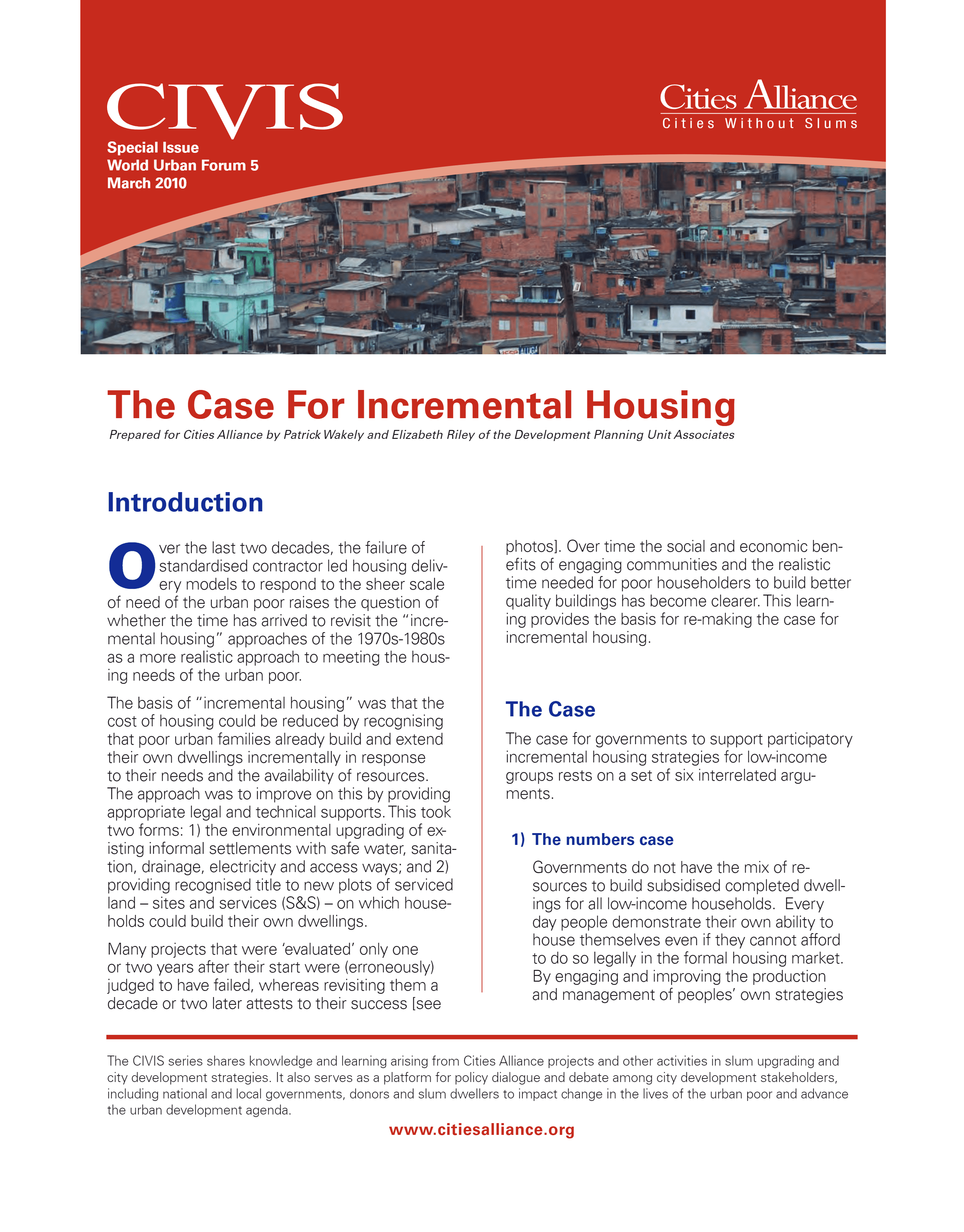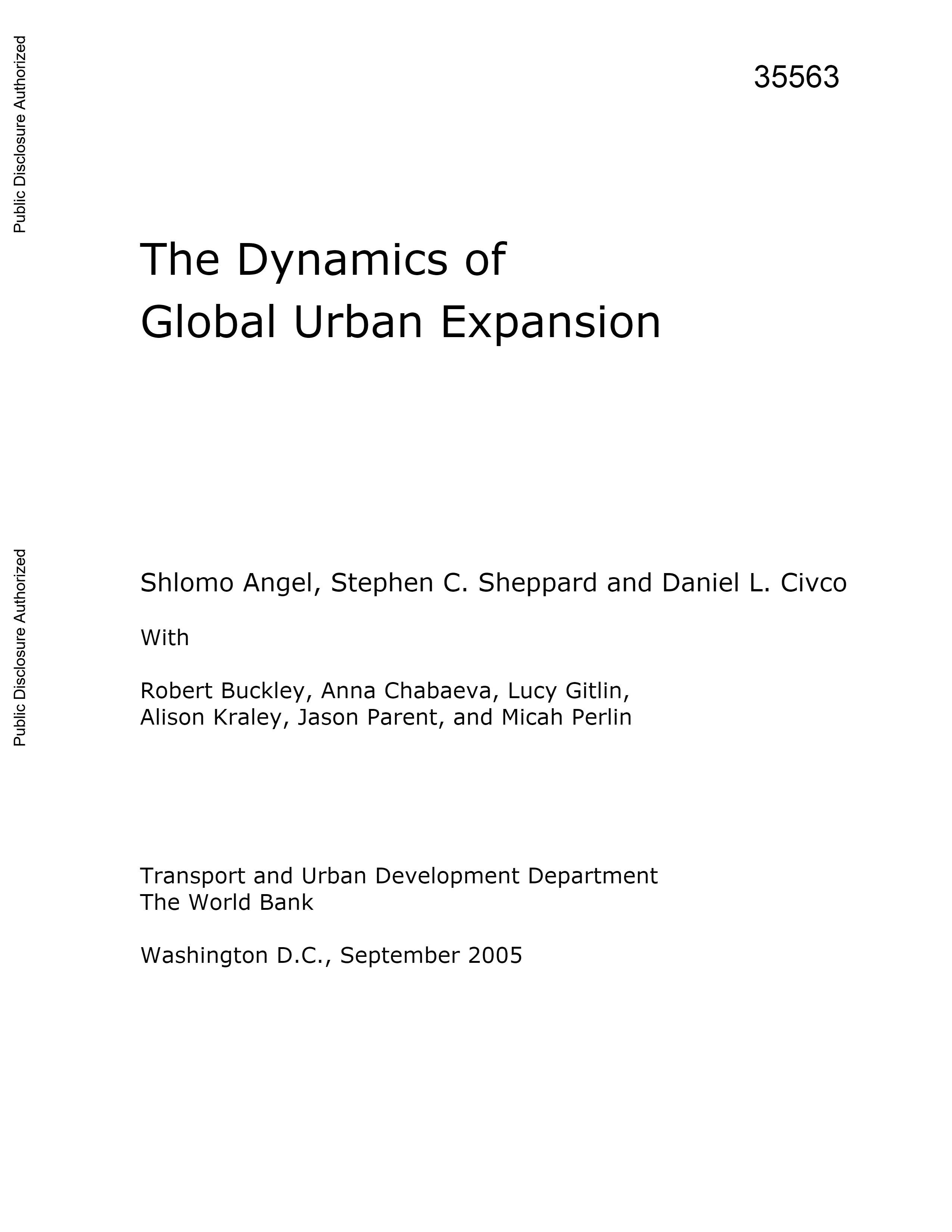- Who We Are
- How We Work
- Regional / Country Initiatives
- Legacy
- Core Themes
- Working Groups
- Portfolio & Results
- Newsroom
- Resources
The Case For Incremental Housing

The Case for Incremental Housing by Patrick Wakely and Elizabeth Riley makes the case for governments to initiate and support incremental housing strategies as a major component of integrated urban development.
It does so through six main arguments:
The numbers case. By engaging householders in the production and management of their own dwellings and neighbourhoods, far more legal, safe, and healthy dwellings affordable to low income groups can be procured than by conventional approaches.
The financial case. By providing security of tenure and access to services, even poor households are able to invest in housing and neighbourhood development through saving and borrowing, thereby sharing the cost of urban development with the government.
The urban management case. By recognising the most effective levels of decision-making and delegating the authority that is required for incremental housing development, partnerships that enhance the efficiency of urban management and the administration of urban services can be built.
The urban development case. By planning areas of legitimate low-income housing development as part of an integrated urban development strategy, governments can set strategic priorities for an entire urban area rather than resorting to ad hoc measures.
The governance case. By engaging households and community leaders in the incremental development of their housing and neighbourhoods, a system of good governance that helps ensure transparency and accountability in decision-making can be created.
The social and economic development case. By encouraging cooperation through incremental development, local communities are built and strengthened. Furthermore, by creating job opportunities through the provision of training and technical support, household incomes can be increased.
The publication is the first in the Cities Alliance Policy Research and Working Papers Series, which seeks to capture rigorous research and analyses of trends and innovations in urban development with the overall goal of enabling the transformative role of cities in poverty reduction.

